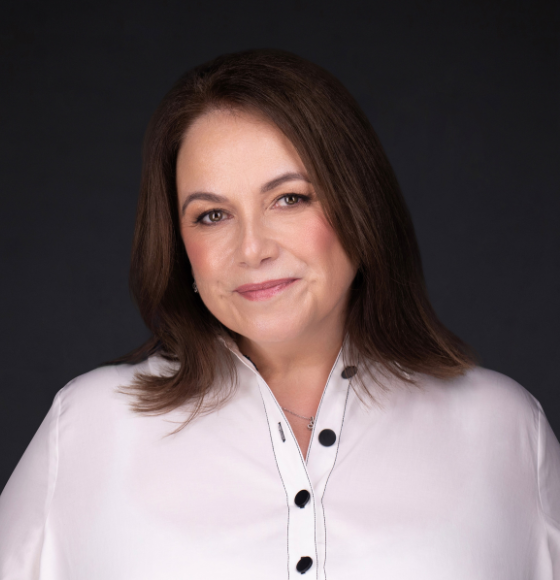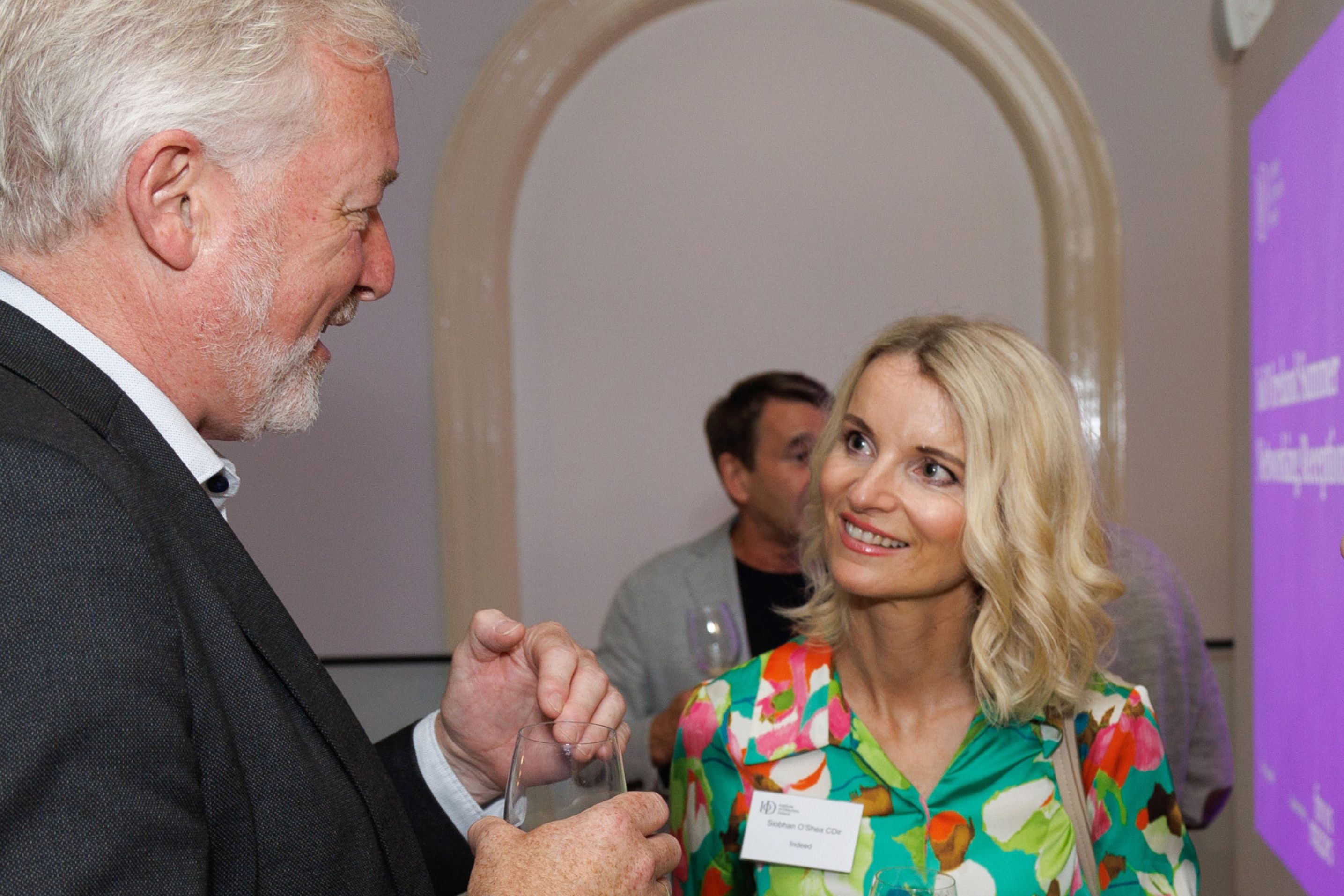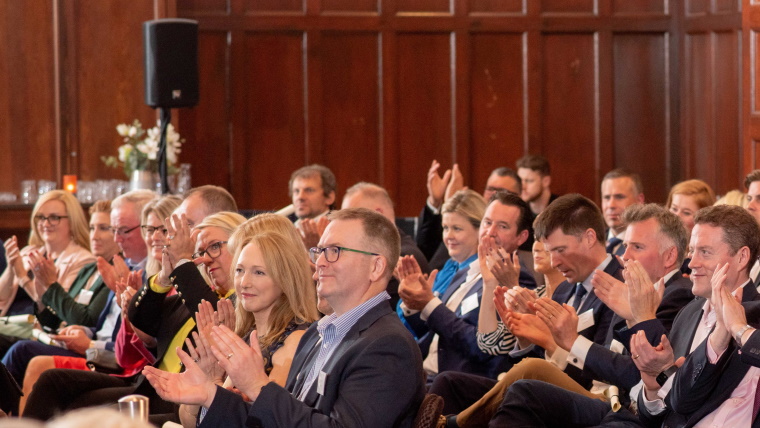
Maureen Breslin
Chief Operating Officer, New Ireland, Bank of Ireland Wealth & Insurance
With a career spanning over 30 years in the financial services industry, Maureen bring extensive experience across life, pensions, general insurance, and health sectors. She has held senior leadership roles in both start-up and established financial services organisations, consistently driving operational excellence, digital innovation, and cultural and organisational transformation.
Tell us more about your background
Most recently, I served as Chief Operating Officer at New Ireland, part of Bank of Ireland’s Wealth and Insurance Division. In this role, I was responsible for delivering customer services across a broad product suite, including protection, pensions, savings, investments, and post-retirement insurance. My remit covered the full customer journey—from new business to claims—ensuring that our in-house teams and offshore partners had the capabilities required to deliver outstanding service. This included managing substantial claim payments and overseeing sensitive customer interactions related to serious illness and bereavement.
My role also encompassed a strong focus on risk and regulatory management. As the first line of defence within a highly regulated environment, the operational teams under my leadership played a critical role in ensuring ongoing compliance and risk mitigation in a dynamic and complex landscape.
In addition to my executive roles, I have served as a director across a range of financial entities, including a Reinsurance DAC, a Trustee company, an insurance brokerage, and as Managing Director of an offshore investment business.
I hold a BSc in Financial Information Systems, am a Qualified Financial Advisor (QFA), and have completed the Institute of Directors' Chartered Director Programme.
What initially drew you to IoD Ireland, and how has your perspective evolved since joining?
I joined IoD Ireland as we were emerging from the COVID-19 pandemic, seeking a business forum that offered cross-industry insights and meaningful learning opportunities. I was particularly drawn to the idea of engaging with leaders from diverse sectors, believing it would bring fresh perspectives and renewed energy—and it certainly has. Having held several director roles in the past without formal training, I was also keen to deepen my understanding of the various roles around the board table and how they should effectively interact and collaborate. Since joining, IoD Ireland has provided both the structure and the stimulus to support that learning journey, and it’s become a valuable part of my ongoing professional development.
How has gaining a board-level perspective influenced your approach as a leader—both in executive and non-executive roles?
Gaining a deeper understanding of governance and strategy from a board perspective—distinct from my day-to-day role in executive management—has been incredibly valuable. Viewing leadership through this different lens has helped me better understand my own executive responsibilities, while also enhancing my appreciation of the perspectives and concerns directors bring as key stakeholders. As a non-executive director of a group company, this insight has been especially useful. It has strengthened my confidence to constructively challenge when appropriate and enabled me to position my contribution more effectively within the boardroom dynamic.
In what ways has being part of the IoD Ireland community added value beyond formal learning?
First and foremost, I really value the new connections and friendships I’ve made—especially through our Chartered Director Programme cohort. The opportunity to build a network across different sectors of business is a real strength of the IoD, as is the access to a wide variety of learning resources and events. Even as an experienced leader, it’s important to keep learning and seeking out new insights beyond your own organisation. Being part of this community keeps you connected, informed, and continually growing.
What is the one characteristic that you believe every leader should possess?
Authenticity. Being your authentic self means staying true to your personal values—and that integrity is visible in how you lead. When leaders make and communicate decisions they genuinely believe in, it builds trust and clarity. It becomes easier for colleagues and the wider organisation to get behind those decisions, even when they're difficult. Authentic leadership also inspires people—it resonates more when they know you're speaking from the heart about the business and its purpose.
What is the most important lesson, from your personal or business life, that has guided you the most in being a business leader?
The lesson I come back to most often is: “all things will pass.” I'm fortunate to be quite a resilient person, and that resilience has been tested at various points in both my personal and professional life. It’s important to remember that no matter how tough a day or week might feel, if you keep moving forward and doing your best, the difficult phase will pass. Staying calm under pressure and helping colleagues focus on getting the basics right during challenging times are often what get you through to a better place.
Is there someone who has had a major impact on you as a leader? Why and how did this person impact your life?
Yes—Donal Byrne, former CEO of Cadbury, who was Chairman when I took on the role of Managing Director of an offshore investment business for Aviva during a particularly challenging period. He was an incredible mentor: calm, experienced, and supportive. While I was finding my feet, he ensured we were always well-prepared and aligned for our board meetings, which really helped build my confidence. He respected my industry experience and taught me new ways of managing upwards into a large parent company. Despite his stature in the business world, he was generous with his time and remarkably kind—qualities I’ve tried to emulate in my own leadership.
What are the biggest business challenges or opportunities that you have seen over your career to date? And how did you help to overcome or optimise these?
One of the most significant challenges I’ve faced was during the financial crisis, when I was a director of a business that made the difficult decision to close to new business, outsource operations, and manage the company as a closed book. We had experienced several successful years and built a fantastic team, so it was an emotional and strategic turning point. But it was the right decision for the operating and economic environment at the time. My personal focus was to support our people through that uncertainty, and I took great care to handle the transition with empathy and responsibility. I believe I did that well, under difficult circumstances.
How do you think business leaders can best prepare for the future?
By committing to continual learning and staying curious about what’s happening beyond your own industry. Change—and challenge—often comes from unexpected directions, so it's important to actively scan the horizon. While you can’t predict the future with certainty, you can prepare for it by building adaptability into your business and proactively strengthening its resilience. That means being open to new thinking, testing scenarios, and encouraging innovation—even when everything seems stable.
What advice would you offer to new or aspiring directors?
Take the time to truly understand the dynamics of the business you're joining—financial, operational, and risk-related. Seek out perspectives to understand the culture, and probe how strong the foundations are for the strategy that's being proposed. Support and challenge management in equal measure, and above all, make sure you understand what the business's customers value. That understanding is key to helping guide the organisation in a direction that’s both strategic and sustainable.

